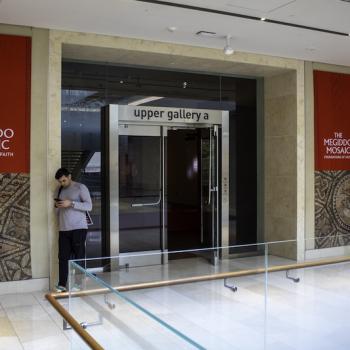The Missional and Anthropological
Essential to Christian mission is the virtue of going, of leaving in order to impart to others. It is exemplified in the Son's leaving the Father to come to the earth and immortalized in the words of Jesus, "Go into all the nations." Yet, we see a trend among young Evangelicals and pastors, one encouraged by seminaries. These evangelicals insist that it is too disruptive to their current ministries (or, alternatively, that the ministries cannot do without them) to relocate for an extended period of training. Seminaries and pastors nurture the costly, but Christian, willingness to leave the comfort of the familiar in obedience to Christ's call on their lives by encouraging students to relocate in order to receive intensive training within a community of spiritual specialists. For seminaries and churches to accommodate this trend by means of distance learning that fails to embed the student in an indispensable mentoring community of spiritual specialists is to nurture two vices: an expectation that ministry commitments can be pursued without discomfort or displacement; and the hubris of imagining oneself to be irreplaceable in God's service. Neither characterizes those suitable for Christian service.
The Incarnational and Sociological
It seems that Docetism and dualism are, in some manner or other, always with us. The tendency to disparage Christ's corporeality is a constant companion. Yet, in taking on flesh and bone, the Son of God revealed many truths, not the least of which is that corporeality is not only blessed, but necessary for God's desired communion with us as well as our fellowship with each other. Humans are not merely intellectual and immaterial; they are also essentially embodied. Authentic human sociology, especially Christian sociology and Christian educational practice founded upon it, must involve not only the intellectual and the immaterial, but also the physical and the material. Christian education is not just the impartation of information. If the Son of God dwelt bodily with us, and if he ordained the Church's remembrance of his physical death and resurrected life in the Eucharist, then we must embrace educational practices that involve students physically embedded in a residential community of spiritual specialists who in body, mind, and soul are imparting truth to other humans with the same properties. This calls into question any philosophy that sees online, or virtual, means of theological education as normative, standard, or, worse, superior to means of education that require the physical presence of both teacher and student in residential community.
Seminary administrations and faculties should give renewed attention to curricular initiatives, methodologies of delivery, and strategic plans that are consciously informed by these and other doctrinal considerations. Seminaries cannot merely teach theology within their curriculum or require their faculties to affirm statements of doctrine. They should live their distinctive faiths out in their philosophies of education. Otherwise, they will deny with their actions what they affirm with their words.




